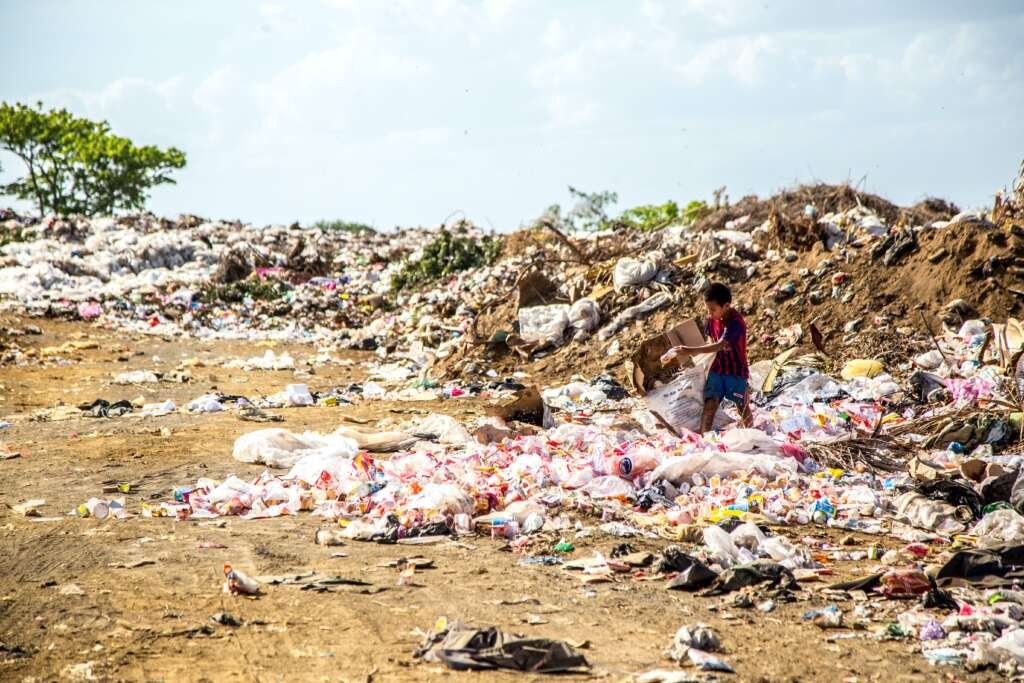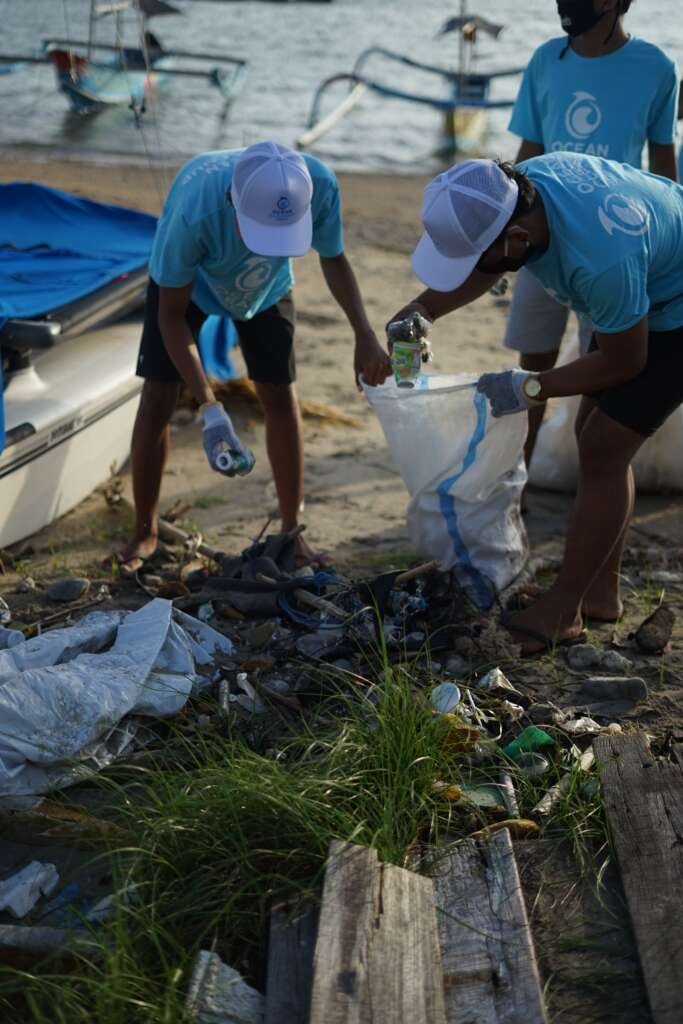Turns Out 20 Companies Are The World’s Biggest Plastic Polluters

Share This Article
Plastics are one of the biggest polluters in the world and it’s becoming a global crisis. Over the last 65 years production has increased nearly 200-fold. In 2015 we produced 381 million tons globally and discarded 55% of it. From the plastic trash that is tossed onto the streets or landfills, an estimated 8 million tons enters our oceans yearly. As conscious consumers, we can say ‘no plastic’ in our daily lives by making decisions to choose items like a reusable water bottle over a single-use plastic one. Yet, these are small steps in the fight against plastic waste. That’s because we’re not the ones producing it. In fact, a new report shows that the world’s biggest polluters are 20 companies are responsible for 55% of the plastic waste worldwide. These companies hold a bulk of the responsibility for plastic pollution and the hazardous effects that come with it.
The report, aptly titled The Plastic Waste Makers Index, also highlights the financial institutions fueling money into the production of single-use plastic and subsequently plastic pollution. Alongside this index are recommendations about how governments, companies and consumers can all work side by side to tackle the global plastic problem.

Why The Biggest Polluters Claim To Be Sustainable
Even as the top producers of single-use plastic waste, the world’s biggest polluters are also companies releasing statements about their partnerships with nonprofits and sustainability goals to protect the environment and reduce plastic waste.
Worried About Plastic Pollution? Here’s How You Can Help Clean Up Our Oceans
Exxon Mobil: Self-labeled as ‘one of the world’s largest publicly traded international oil and gas companies’, the report also shows that Exxon is one of the world’s biggest producers of single-use plastic waste. Exxon generates 5.9 million tons of single-use plastics.
For a company that has announced in 2019 it’s efforts to ‘end plastic waste’ by becoming a founding member of the nonprofit The Recycling Partnership, it’s conflicting news to hear that they’re also the #1 contributor to this problem.
Dow: Coming in at #2 on the list is Dow, a materials science company, that in their words “delivers sustainable solutions for customers”. Much like its predecessor Exxon, this contradicts the fact that the company produced 5.7 million tons of tons of single-use plastic waste in 2019.
As the world’s largest producer of plastics, we are committed to find ways in which we can continue the convenience, protection, affordability and safety of plastics.
Dow
Dow has released their sustainability report for 2019. Part of the 101 page report highlights their dedication to sustainable initiatives such as promoting a circular economy, protecting the environment, and using safer materials. On page 19 these steps seem to focus more on the end life of plastic – customer recycling programs, ocean clean-ups and partnerships with the Alliance to End Plastic Waste.

Recommendations For The Sources Of The Plastic Crisis
The report doesn’t simply share graphs showing how these companies are contributing to single-use plastic pollution. It also shares real recommendations for both the share-holders and policy makers who are the ‘gatekeepers of plastic production’.
Quit paying lip service to sustainability and seize the opportunity to re-tool.
The Plastic Waste Makers Index
“Set real, quantifiable and time-bound commitments to reduce reliance on fossil fuel feedstocks and shift to circular recycled polymers.” One suggestion made in the report is for these companies to begin making (and sharing) how they’re moving away from virgin plastic. While many of these corporations are wiling to share sustainable initiatives that focus on keywords like ‘recycling’ and ‘nonprofits’, reducing their production of single-use plastics and therefore their reliance on fossil fuels doesn’t appear to be a priority. The report highlights that and urges plastic producers to be more transparent about these issues.
With the knowledge of which companies are at the source of the single-use plastic waste crisis, policy-makers can now draft effective regularly responses.
The Plastic Waste Makers Index
There is the Paris Agreement that focuses on fighting against climate change worldwide and the Montreal Protocol to protect the ozone layer. Just as these global treaties fight against climate crisis, this reports states that a similar one should be set up to fight plastic pollution. Once again, the term ‘transparency’ is emphasized with policy makers called on to make it a ‘mandatory reporting metric’.

* If you believe that policy makers should step in to fight against single-use plastic pollution, sign this petition along with 100,000+ others asking Congress and President Joe Biden to ACT NOW!

